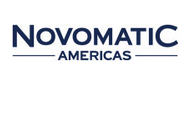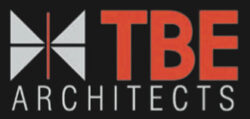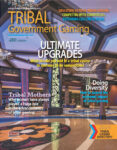
Tribal attitudes toward sports betting vary widely from enthusiastic adoption to outright opposition. And it largely has to do with where the tribe is located and how it operates.
Because of a presence in 13 of the 30 most populous states, tribal gaming will have a big say in where and how sports betting gets legalized. Those states include California, Florida, New York and Michigan, and represent over 40 percent of the population of the United States.
One key factor in determining the influence of tribes in sports betting will be whether their existing compacts address sports betting already, or even contemplate it as a possible future game to be offered. If that’s not the case, tribes and states will have to negotiate. Normally, tribes are reluctant to renegotiate existing compacts because states often see this as a chance to demand a large percentage of their profits.
Some states will require constitutional amendments. In other cases, tribes will interpret their existing compacts as allowing them to offer sports books. This was the case several months ago when the Santa Ana Star Casino & Hotel near Albuquerque, New Mexico began unilaterally offering sports wagering—without a consultation with the state.
Because tribal casinos make such significant monetary contributions to some states, such as California and Oklahoma, they have built up a lot of influence with state government. It’s unlikely that gaming tribes would permit sports betting to exist off the reservation. And mobile sports betting seems to be problematic as well.
John McCarthy, executive director of the Minnesota Indian Gambling Association, told Sports Handle, “Our major concern is the mobile gambling. We’ve been fighting that forever. Why would you get up on a 20-below-zero day and come out to the casino when you could just sit at home? We’re not opposed in any way to sports betting as an activity, but we are concerned about what mobile leads to.”
The association’s position is that any mobile gaming is a negative, and since many tribes depend on their casinos to fund their governments, provide services and give them a sense of pride, this is a major concern. They have the attitude that once the camel’s nose is under the tent, the tent will collapse.
Moreover, says McCarthy, the monetary benefits from sports betting are not that great comparatively. “We don’t think it’s a huge amenity.” He adds, “We’ve seen how it works. The first thing that starts to go is the live racing at racinos, then they go back to the legislature, and say, we’re not quite making it, we really need some machines, and then other groups come in and say, well, you’re bailing them out; I’m a farmer, so why don’t you bail me out?”
The Minnesota tribes insist that sports betting with mobile apps is a nonstarter. Last month, the Minnesota Indian Gambling Association sent a letter to the legislature saying that members “oppose the expansion of off-reservation gambling, including the legalization of sports betting.” Period.
Washington’s tribes have the same stance. But in that state a tribal-only bill drew major opposition, and many other interests insisted that they wanted to be included, such as taverns, card rooms, OTBs and racetracks.
Although many tribes do claim exclusivity of all forms of gaming, their argument is complicated by the fact that no existing compacts address sports betting by name. The tribes argue, however, that “sports betting” is embraced by the existing language, even if not named explicitly.
But not all tribes are on the same page in Washington. Jerry Allen, a tribal elder of the Jamestown S’Klallam Tribe, admits “there’s not a consensus at all” in how to address sport books among gaming tribes.
“It has to do with compacts and politics.” He adds, “In Washington, we only have 29 tribes, but some of the tribes are more conservative than others. It makes no sense to offer up a bill that doesn’t make sports betting accessible to everyone through mobile betting. It’s clear the public doesn’t want to get out of their own living rooms every time they make a bet.”
The National Indian Gaming Association issued guidelines on how sports betting should be developed last year after the U.S. Supreme Court lifted the federal ban on sports betting.
These principles include such things as that tribal sovereignty and the authority to regulate games must be acknowledged, and that sports betting revenues will be taxed. They insist that if sports betting is legal anywhere in the state it must be legal at tribal casinos.
Most important from a tribal perspective is that sports betting not be seen as an excuse to reopen the Indian Gaming Regulatory Act for amendment.


















